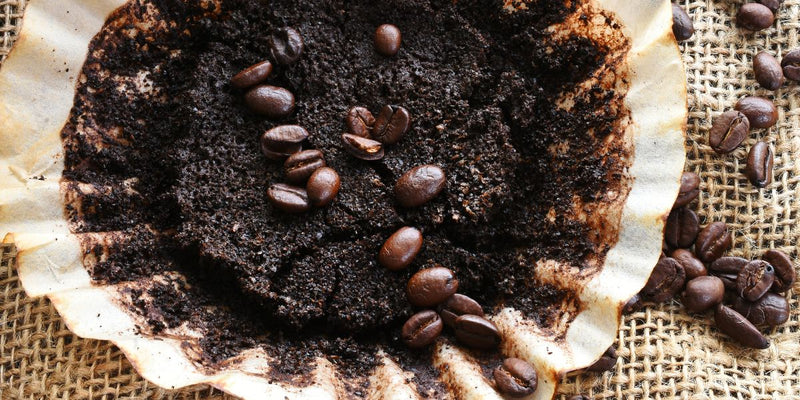Bleached coffee filters are chemically treated for a lighter color, while unbleached filters are natural and brown. Bleached filters may contain trace chemicals, but unbleached filters offer a more eco-friendly option.
Coffee filters are an essential accessory for coffee brewing, but choosing between bleached and unbleached filters can be a dilemma. Bleached coffee filters are whitened using chemicals, while unbleached filters retain their natural brown color. The main difference between them lies in their manufacturing process and potential impact on the environment.
We will explore the differences, pros, and cons of bleached and unbleached coffee filters, helping you make an informed decision for your coffee brewing needs. Let’s dive in!

Credit: www.thecommonscafe.com
The Basics Of Coffee Filters
Coffee filters play a crucial role in brewing a perfect cup of coffee. There are various types of coffee filters available, including bleached and unbleached options. Bleached filters are chemically treated to achieve a white appearance, while unbleached filters retain their natural brown color.
Both types serve the same function of filtering out coffee grounds, but some people prefer unbleached filters to avoid potential chemical residues. Coffee filters are important because they prevent grounds from entering the brewed coffee, ensuring a smooth and clean taste.
They also help trap oils and sediments, resulting in a clearer cup of coffee. Ultimately, the choice between bleached and unbleached filters is a matter of personal preference, with each option offering its own benefits.
Understanding Bleached Coffee Filters
Bleached coffee filters undergo a process of bleaching to achieve their bright white appearance. The bleaching process involves the use of chemicals, such as chlorine or oxygen, to remove impurities and natural color from the paper. These filters go through additional chemical treatments, which can potentially leave behind residue affecting the taste and aroma of your coffee.
On the other hand, unbleached coffee filters are made from natural fibers without any chemical treatment. While they may have a slightly beige color, they do not interfere with the flavor of your coffee. The decision between bleached and unbleached filters ultimately comes down to personal preference.
Bleached filters offer a visually appealing option, while unbleached filters provide a more environmentally-friendly choice. It is important to consider the potential impact on taste and aroma when making your selection.
Unveiling Unbleached Coffee Filters
Unveiling the world of unbleached coffee filters, let’s explore their significance and key characteristics. These filters are not chemically treated, making them a healthier choice for your morning brew. With no bleach residues, unbleached filters maintain the natural taste of the coffee.
Additionally, they are more environmentally friendly, as the bleaching process for regular filters can release harmful chemicals into the ecosystem. However, unbleached filters may have a slightly different appearance, as they retain their natural brown color. While some may argue that bleached filters produce a brighter beverage, the taste and quality remain subjective.
Ultimately, the choice between bleached and unbleached filters depends on personal preference, considering both the health benefits and environmental impact. So, next time you make your coffee, consider opting for the unbleached filters for a more natural and sustainable option.
The Debate: Bleached Vs Unbleached Filters
When choosing coffee filters, health considerations come to mind. Bleached and unbleached filters have taste and quality differences. It’s important to consider factors to make the best choice.
Making An Informed Decision
When choosing coffee filters, there are several factors to consider. Firstly, think about your preferences and needs. If you prefer a milder taste, unbleached filters might be the better option. However, if you prefer a cleaner taste, bleached filters might be more suitable.
It’s also important to consider the environmental impact. Unbleached filters are typically more eco-friendly. Another important factor is the filtration capability. Bleached filters tend to have finer pores, resulting in a cleaner cup of coffee. On the other hand, unbleached filters may allow more oils to pass through, resulting in a richer flavor.
Lastly, it’s crucial to follow best practices for using both bleached and unbleached filters to ensure optimal taste and performance. So, carefully weigh these factors before making an informed decision about which type of coffee filter is best for you.
Frequently Asked Questions For Bleached Vs Unbleached Coffee Filters
Which Is Healthier Bleached Or Unbleached Coffee Filters?
Bleached and unbleached coffee filters have similar health benefits, but unbleached filters are slightly healthier.
Is It Better To Use Unbleached Coffee Filters?
Yes, using unbleached coffee filters is better since they don’t contain harmful chemicals like bleached filters.
Are Bleached Coffee Filters Safe?
Yes, bleached coffee filters are safe for use.
Why Are Bleached Coffee Filters Cheaper Than Unbleached?
Bleached coffee filters are cheaper than unbleached because the bleaching process reduces production costs.
Conclusion
To recap our discussion on bleached and unbleached coffee filters, it’s clear that both options have their advantages and drawbacks. Bleached filters offer a brighter appearance and may have a more pleasant taste for some individuals. However, the bleaching process used to achieve this can introduce harmful chemicals into the environment.
On the other hand, unbleached filters are a more eco-friendly choice, as they skip the bleaching process altogether. While they may have a slightly earthier taste and can sometimes leave behind more sediment, these filters are a safer option for both your health and the environment.
Ultimately, the decision between bleached and unbleached coffee filters comes down to personal preference and priorities. Whether you prioritize taste, sustainability, or a combination of both, there is a filter out there for you. Happy brewing!

